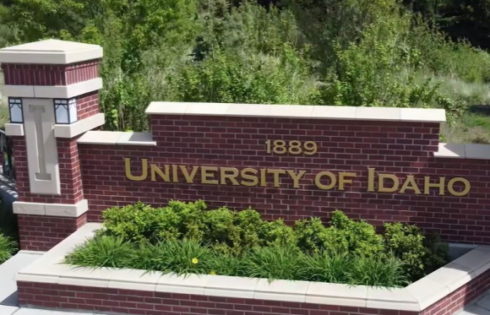The Post 9/11 G.I. Bill created a new class of student veterans at colleges and universities across the country — but among elite universities, few are like Stanford.
Where some other top institutions enroll only a handful, if any, undergraduate veterans (Harvard enrolled two this year, Princeton none), Stanford stands apart. The school has 21 undergraduate veterans this year, according to a report done by Wick Sloane of Inside Higher Ed.
But where the impact of the Post 9/11 Bill has really been felt is Stanford’s graduate schools, which have seen significant increases in their veteran population.
The Stanford Law School Class of 2013 has about twice as many military veterans as did the class before it, an increase from four to eight in a class of only 170. Similar gains can be seen in the first-year class at the Graduate School of Business.
One result of the larger veteran population on campus has been a renewed interest in veterans clubs. The Veterans Club of the Graduate School of Business, which has existed for a number of years, “serves as [a] resource for members to foster professional and personal development while encouraging leadership, both within the GSB and in the greater business community,” as is stated on their GSB website info page.
Adding to the still relatively small veterans’ club presence at Stanford is a new organization, Stanford Law Veterans Organization (SLVO). Two first-year student veterans at the law school, Gavriel Gershon Jacobs and Jake Klonoski, started the group this year.
Though many veterans’ organizations now exist on campus, many of them are not well known by the larger community and, to a certain extent, even by the veteran community.
“We are just trying to get a good feel for all the veterans’ groups around campus,” said Tim Hsia, a first-year law student and member of SLVO. “We’re very young and we’re just playing around with ideas. For right now, [SLVO] is just a network for veterans.”
Recently, the various military organizations have begun to merge and interact with each other. In mid-October, the Veterans Club at the GSB and SLVO organized a joint barbecue for veterans on campus. Then on November 2, the Haas Center for Public Service organized an event to bring together all of the veterans groups on campus.
The Haas Center has also taken on the role of actively bringing undergraduate veterans to Stanford. According to undergraduate and military veteran Sebastain Gould, the current undergraduate veteran population numbers nine students.
“When we hear of people coming off of active duty…we encourage them to apply,” Gould said.
According to Hsia, the increase in veteran presence on campus is a direct result of the Post 9/11 GI Bill.
“Part of being able to go to a great school like Stanford is paying for it, and it’s expensive, so the government helps pay for a good chunk of it,” he said.
“[The bill] helps especially in California,” Gould added. California participates in the Yellow Ribbon program, in which veteran students are granted a housing stipend and, if they attend a private college or university, have their scholarship from the Department of Veterans’ Affairs matched by the state. Under the new G.I. Bill and the Yellow Ribbon program, students receive as much as “twice or three times what they were receiving previously,” according to Gould.
Hsia argues that veterans’ organizations are becoming an integral component of Stanford’s diverse population.
“I think veterans’ groups provide a very good balance to the school,” he said. “I think having a diversity of viewpoints is always a good thing.”
At the Haas Center, Gould and others are working to bring military veterans into the Stanford mainstream.
“First, we want to educate students on campus about the military,” Gould said. “A lot of people have this conception of being in the military as being different and as not being a valid career option, but it is public service and it is leadership.”
Andrew Mainero is a staff writer for the Stanford Review. He is a contributor to the Student Free Press Association.




Please join the conversation about our stories on Facebook, Twitter, Instagram, Reddit, MeWe, Rumble, Gab, Minds and Gettr.